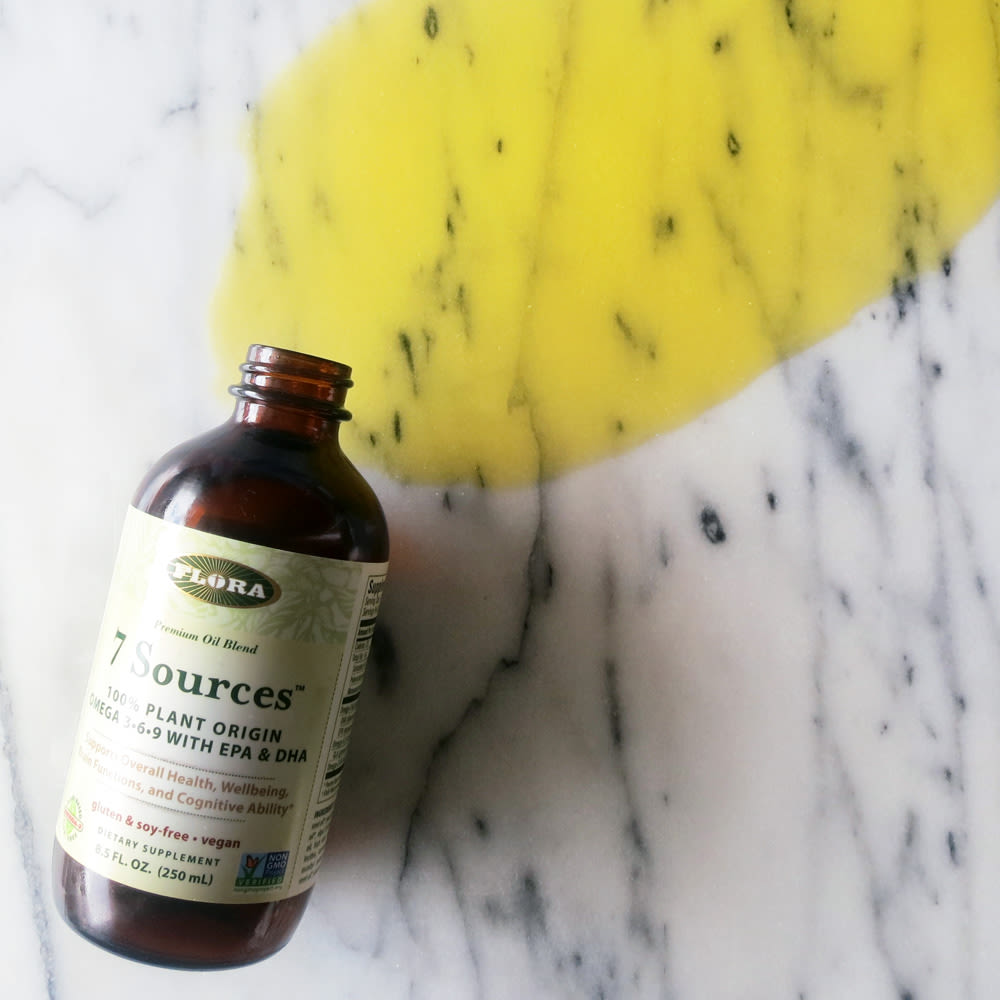Omega fatty acids! Everybody needs them to stay healthy—in fact, the hallmark symptoms of omega-3 deficiency are fatigue, forgetfulness, dry skin, heart problems, mood swings, and/or poor circulation—but a lot of people aren't getting enough of them (or, more accurately, getting the correct proportions of them).
You see, once upon a time before expeller-pressed canola oil was even a glimmer in ConAgra's eye, people ate a whole bunch of different oils with varying omega fatty acid ratios. The most important omega fatty acids are 3, 6, and 9, although you may also have noticed the sudden vogue for sea buckthorn oil, which contains omega-of-the-moment lucky number 7.
For most of human history, we all went around eating weird seeds and the dumbest fish in any given river and gross bugs and all manner of stuff that, unlike French fries, were either crunchy plant things or moving-type things that had a fighting chance of escaping the terrors of our stubby canine teeth (I'm convinced this is why we invented vampires—we as a species have major fang envy).
But anyway, then one day we discovered we could make things easier on ourselves and that fried stuff was delicious and we were all like, “We don't understand how our bodies work! OMG IS THAT FOOD?” and then didn't think about it for a while because we were too busy enjoying our collective Baked Alaskas. Which, like most crazy parties, then led to a major hangover.
These days, the average American's consumption of omega-6 fatty acids is literally sixteen times higher than our consumption of 3 or 9, when the evidence suggests we should probably be getting equal proportions of all three. Not good, my friends. It's especially dangerous because omega-6 is pro-inflammatory and requires anti-inflammatory omega-3s to balance it out and help prevent arthritis, along with a whole host of other diseases.
Unfortunately, though, omega-3 is hard to get from our current diets, even if you're trying. It's in flax seeds, chia seeds, salmon, and other fatty fish, but because of mercury concerns/people not wanting to eat chias/lack of general information on the subject, it's very, very easy (especially if you're a vegetarian) to wind up with an unhealthy fatty acid ratio.
Which is where my beloved Flora 7 Sources Oil Blend comes in. I've been vegetarian almost my entire life, and until this winter had never had an omega deficiency. But when I did? Oh, it was terrible. No matter what I tried, my skin felt disgusting, I was miserable all the time, and I felt sluggish even though I was basically mainlining caffeine. Until, that is, I went to the doctor because I looked like I was dying, got a huge panel of blood tests done, and then got a call from a nice nurse who politely informed me that my only problem was low omega-3 levels.
Because OD'ing on omega-3's in order to balance out the omega-6's is also a bad idea, if you end up deficient like I was, your best option is to replace suboptimal oils whenever you can, and 7 Sources is designed to have the best possible balance. Also, if you shake it (definitely always shake it, because otherwise... blech), it's darn delicious, kinda like a liquid version of those sunflower seeds they have at gas stations. When I make a salad, I sub in 7 Sources for the usual canola oil dressing base, take a couple of tablespoons a day, and entirely avoid stuff fried in sunflower, corn, or soybean oil, since all three have super-high omega-6 content but almost no 3 or 9. Olive oil is actually a great source of omega-9 and has very little omega-6, but unfortunately it won't help you much with getting 3. If switching a ton of your oil consumption over to some bottle of hippie-dippie sounding stuff is unappealing, you can also take flaxseed or fish oil supplements that are mostly omega-3. It doesn't really matter how you get yours—just make sure you do! Otherwise, we're all going to be really itchy and cranky for no good reason. And who has time for that?
—Lacey Gattis
Photo by Lacey Gattis.

